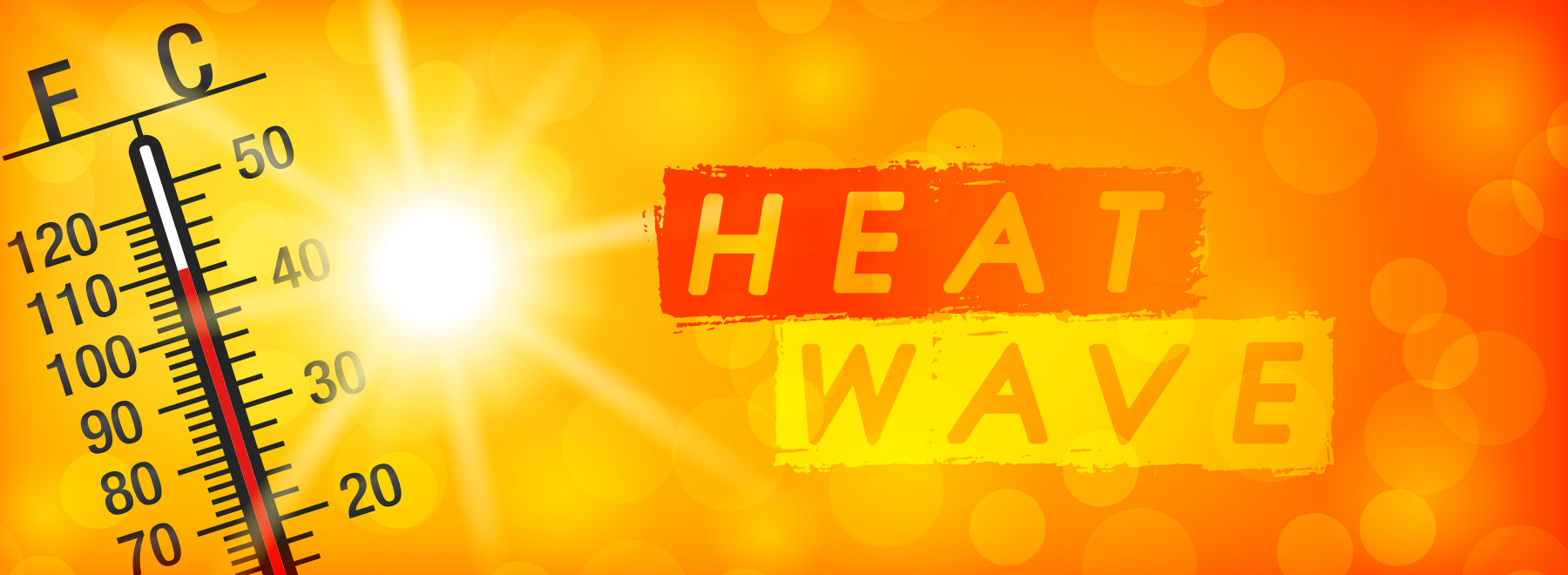Take precautions when temps are too hot to handle
It’s hot in Mississippi, and with scorching temperatures in the forecast for weeks to come, it’s imperative to protect yourself from illness that could potentially be deadly.

“The biggest safeguards to succumbing to heat illnesses are maintaining hydration and taking adequate breaks – a safe ‘work and rest’ cycle if you have to be outside, or a safe ‘play and rest’ cycle if you are playing sports,” said Dr. Kendall McKenzie, chair of the University of Mississippi Medical Center Department of Emergency Medicine.
Although most Southerners are used to the heat, as opposed to Chicago residents whose homes may not have air conditioning because summer temps are usually not dangerous, temperatures into the 90s or above are concerning, McKenzie said.
“What we’ve learned is that in cities not used to dealing with the heat, during a heat wave people should go to an air-conditioned environment once a day to reduce their body temperature and take a break,” he said. “Get out of the heat in a meaningful and regular way.”
The National Weather Service in recent weeks has issued heat advisories for most of the nation, with life-threatening and excessive heat across the Midwest, not just in southern states.
Especially for people whose jobs require they work outdoors, “right now is a dangerous time,” McKenzie said. Even in Mississippi, “it takes at least two weeks for someone to acclimate themselves to heat exposure. We’re at the very beginning of this for the summer.”
The most common heat illnesses are heat exhaustion and heat stroke. “Heat exhaustion is the lesser of the two, and for the majority of Americans, can be managed by removing someone from heat exposure and hydrating them orally,” McKenzie said.
More severe cases of heat exhaustion should be treated in an emergency department. “If you are vomiting and can’t replace your fluid loss orally, you need to come to an emergency room and get IV fluids to replace what you lost,” he said. “You can have a landscaper or street construction worker outside all day long, and come to the Emergency Department with intense pain, doubled over because they are cramping so badly. They need to be treated in an emergency department.
“Heat stroke definitely needs to be treated in the Emergency Department.” McKenzie said. “These patients by definition will have elevated temperatures and neurological symptoms secondary to heat exposure. This is a true medical emergency that must be quickly addressed.”
Heat-related illnesses can be exacerbated by alcohol consumption, “or by people who start their day dehydrated and continue to get more dehydrated,” McKenzie said. Taking certain medications also can worsen a heat illness, the American Academy of Family Physicians says.
When rehydrating, people generally choose either water or sports drinks. “You should use a combination of both,” McKenzie said.
“Just replacing sweat with water is not ideal. At some point, you have to replace electrolytes that you are losing as well,” he said. “Sweat is a salty substance. You are losing salt when you sweat, so a mixture of water and sports drinks is ideal.”

Doug Craft supervises the Medical Center’s groundskeeping team. You can see them working outside, whether it’s in the triple digits or when there’s ice on the ground.
During the hot months, “we keep Gatorade on hand and encourage frequent breaks and getting out of direct sunlight whenever possible,” Craft said. “It allows the body temperature to cool down. We also try to do the most strenuous work early in the morning, before the heat rises.”
McKenzie suggests staying ahead of the curve and making sure you’re not dehydrated as you weather the hot weather.
“Seasoned athletes who are used to being out on the football field in the summer, preparing for the fall season, only replace about 50 percent of the fluid volume they lost by sweating,” McKenzie said. “These are some of the most in tune to their body people on earth.
“The majority of us aren’t as in tune to our body as a professional athlete is. We’re not even coming close to replacing 50 percent of the fluids we lose. If you know you will be outside, cutting the grass or being exposed to intense heat for a while, starting to hydrate before you’re outside and then continuing to hydrate is important.”
It’s crucial this time of the year, McKenzie said, to be aware of situations where heat can be troublesome or deadly. “If you see a child left in a car, even if the parent is just running into the store, it’s a dangerous situation and a preventable death. It’s not a good time for animals to be left in cars as well.”
Summer is also a time for tragedies such as a parent forgetting that a small child or infant is in the back seat or a car seat, then driving to work instead of day care, only realizing hours later that their child was left in a sweltering vehicle. “These are horrendous deaths, and they are preventable,” McKenzie said.
McKenzie anticipates a steady stream of patients – but not a surge –at UMMC’s Adult Emergency Department who are suffering from a heat illness.
“This won’t be just for the first two weeks of someone’s exposure, but throughout the summer,” he said. “It will be ongoing. People are not used to this heat when they go from a relatively cool and protected environment to one where they are consistently exposed to heat.”



